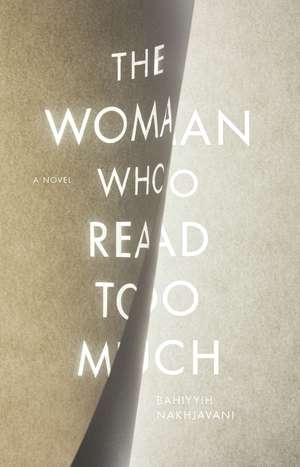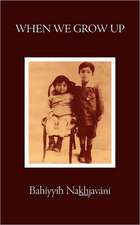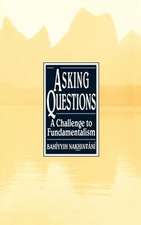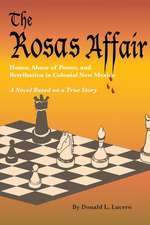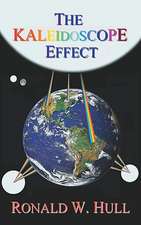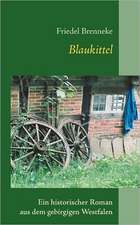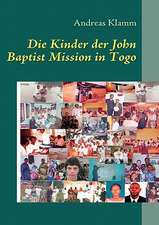The Woman Who Read Too Much: A Novel
Autor Bahiyyih Nakhjavanien Limba Engleză Hardback – 24 mar 2015
Gossip was rife in the capital about the poetess of Qazvin. Some claimed she had been arrested for masterminding the murder of the grand Mullah, her uncle. Others echoed her words, and passed her poems from hand to hand. Everyone spoke of her beauty, and her dazzling intelligence. But most alarming to the Shah and the court was how the poetess could read. As her warnings and predictions became prophecies fulfilled, about the assassination of the Shah, the hanging of the Mayor, and the murder of the Grand Vazir, many wondered whether she was not only reading history but writing it as well. Was she herself guilty of the crimes she was foretelling?
Set in the world of the Qajar monarchs, mayors, ministers, and mullahs, this book explores the dangerous and at the same time luminous legacy left by a remarkable person. Bahiyyih Nakhjavani offers a gripping tale that is at once a compelling history of a pioneering woman, a story of nineteenth century Iran told from the street level up, and a work that is universally relevant to our times.
Set in the world of the Qajar monarchs, mayors, ministers, and mullahs, this book explores the dangerous and at the same time luminous legacy left by a remarkable person. Bahiyyih Nakhjavani offers a gripping tale that is at once a compelling history of a pioneering woman, a story of nineteenth century Iran told from the street level up, and a work that is universally relevant to our times.
| Toate formatele și edițiile | Preț | Express |
|---|---|---|
| Paperback (1) | 110.54 lei 3-5 săpt. | |
| Stanford University Press – 31 mar 2016 | 110.54 lei 3-5 săpt. | |
| Hardback (1) | 141.26 lei 3-5 săpt. | |
| Stanford University Press – 24 mar 2015 | 141.26 lei 3-5 săpt. |
Preț: 141.26 lei
Nou
Puncte Express: 212
Preț estimativ în valută:
27.05€ • 27.87$ • 22.66£
27.05€ • 27.87$ • 22.66£
Carte disponibilă
Livrare economică 03-17 februarie
Preluare comenzi: 021 569.72.76
Specificații
ISBN-13: 9780804793254
ISBN-10: 0804793255
Pagini: 336
Dimensiuni: 140 x 216 x 33 mm
Greutate: 0.52 kg
Editura: Stanford University Press
Colecția Redwood Press
ISBN-10: 0804793255
Pagini: 336
Dimensiuni: 140 x 216 x 33 mm
Greutate: 0.52 kg
Editura: Stanford University Press
Colecția Redwood Press
Recenzii
"Nakhjavani's treatment of the historical figure is not so much to paint her as an eloquent proponent of the nascent faith but to apply her considerable narrative dexterity to an imaginative novel portraying the life and times of a woman with a strong voice in mid-nineteenth-century Iran who dared remove her veil in public and engage men in religious polemic. It is an engrossing story; to this day, Iranian society has not resolved publicly the social and political rights of women, nor has it clarified the status of religious and ethnic minorities."—Gayatri Devi, World Literature Today
"'History is filled with screams that are best ignored,' Bahiyyih Nakhjavani writes in The Woman Who Read Too Much. Yet this mordant and seethingly intelligent story of palace intrigue in late 19th-century Persia echoes with the cries of the forgotten dead - and good luck ignoring them."—Sam Sacks, Wall Street Journal
"Bahiyyih Nakhjavani's . . . visual storytelling is so enticing that it allows your imagination to shape, plot, and cast the narrative like episodes from a modern-day "House of Cards." . . . This book chronicles the haunting, rebellious lives of Qajar women . . . [and] reminds us all that whether Tudor, Qajar, or Clinton, behind every throne is a queen mother, wife, and sister who runs the show."—Davar Ardalan, Washington Independent Review
"Bahiyyih Nakhjavani has chosen to construct, around the figure of Táhirih, a complex fragmented portrait that brings to literary life not only the remarkable personality of someone little known in the west, but also the convoluted Persia of the 19th century, treacherous and bloodthirsty . . . In a beautifully unobtrusive and graceful style, Nakhjavani succeeds in portraying these currents and countercurrents, and the many conflicting characters, in a narrative that is breathtaking in its scope and wonderfully illuminating. Above all, the figure of Táhirih . . . becomes one of the most powerfully convincing characters in recent historical fiction."—Alberto Manguel, The Guardian
"Although set in the Victorian era, Nakhjavani's portrait is as contemporary as anything making headlines today, filled with issues ranging from women's subjugation and gender inequality to political violence and religious fundamentalism. Internationally acclaimed for her fiction and her nonfiction about religion and education, Nakjavani offers a philosophically complex yet lyrically wrought examination of the eternal struggle for women's rights."—Carol Haggas, Booklist
"A mid-19th-century Persian poetess clashes against old-world gender expectations, religious orthodoxy, and politics in this exquisite tale, based on the actual life of poet and theologian Tahirih Qurratu'l-Ayn . . . Nakhjavani deftly transforms an incomplete history into legend. An ambitious effort produces an expertly crafted epic."—Kirkus Reviews
Praise for The Saddlebag and Paper:
"Nakhjavani displays a love of storytelling almost for its own sake."—Literary Review
"Nakhjavani's anachronistic style sets the novel apart from the bulk of contemporary literary fiction and adds immensely to its charm."—Publishers Weekly
"Bahiyyih Nakhjavani is best—really very effective—when she writes of the sandstorms and delusions of our own imperfect Earth."—The Washington Post
"Nakhjavani's language has a subtly wrought simplicity that serves to emphasize her themes, and her argument for the sanctity of the written word is tightly woven into a vivid tapestry of characters and situations."—Times Literary Supplement
"Nakhjavani throws into her tale such a mixture of humor, exotic sensuousness and lofty omniscience that I was left spellbound like Scheherezade's sultan."—Tablet
"Nakhjavani's rich, poetic narrative . . . is a delight to read and her words just dance across the page, dazzling even the casual reader . . . A remarkable first novel that expands like the overlapping petals of a flower."—The Big Issue
"A first novel of astonishing power and originality . . . [T]his is both a thriller and a meditation on the ultimate goal of human existence and most of all it is a celebration of storytelling."—The Good Book Guide
"A mid-19th-century Persian poetess clashes against old-world gender expectations, religious orthodoxy, and politics in this exquisite tale, based on the actual life of poet and theologian Tahirih Qurratu'l-Ayn . . . Nakhjavani deftly transforms an incomplete history into legend. An ambitious effort produces an expertly crafted epic."—Kirkus Reviews
Praise for The Saddlebag and Paper:
"Nakhjavani displays a love of storytelling almost for its own sake."—Literary Review
"Nakhjavani's anachronistic style sets the novel apart from the bulk of contemporary literary fiction and adds immensely to its charm."—Publishers Weekly
"Bahiyyih Nakhjavani is best—really very effective—when she writes of the sandstorms and delusions of our own imperfect Earth."—The Washington Post
"Nakhjavani's language has a subtly wrought simplicity that serves to emphasize her themes, and her argument for the sanctity of the written word is tightly woven into a vivid tapestry of characters and situations."—Times Literary Supplement
"Nakhjavani throws into her tale such a mixture of humor, exotic sensuousness and lofty omniscience that I was left spellbound like Scheherezade's sultan."—Tablet
"Nakhjavani's rich, poetic narrative . . . is a delight to read and her words just dance across the page, dazzling even the casual reader . . . A remarkable first novel that expands like the overlapping petals of a flower."—The Big Issue
"A first novel of astonishing power and originality . . . [T]his is both a thriller and a meditation on the ultimate goal of human existence and most of all it is a celebration of storytelling."—The Good Book Guide
Notă biografică
Bahiyyih Nakhjavani grew up in Uganda, was educated in the United Kingdom and the United States, and now lives in France. She is the author of The Saddlebag and Paper as well as non-fiction works about fundamentalism and education. Her novels have been published in French, Italian, Spanish, German, Dutch, Greek, Turkish, Hebrew, Russian, and Korean. She was praised in the Times Literary Supplement as a "superb Persian novelist," and the French translation of The Woman Who Read Too Much was identified, in 2007, as "one of the best three books" of the year.
Descriere
Men died when women began to read.
